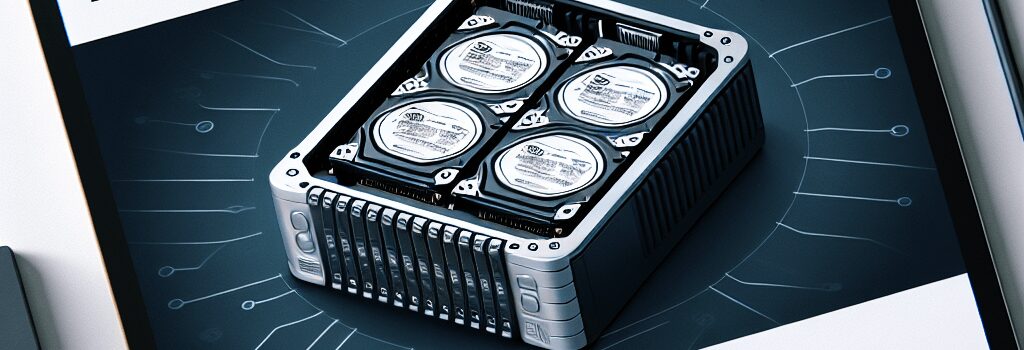Synology Updates Drive Policy for NAS Flexibility

Synology, a prominent name in network-attached storage (NAS) systems, is gearing up to implement a more stringent drive certification policy in its 2025 Plus series NAS models. According to a press release on its German-language website and corroborated by reports on HardwareLuxx, only Synology-certified hard drives — either proprietary or third-party drives that meet Synology’s strict validation criteria — will be able to access the full suite of advanced features. This move marks a significant step in Synology’s ongoing efforts to craft an integrated ecosystem while ensuring higher levels of security, performance, and efficient support.
Defining the Certified Drive Initiative
The new policy is part of a broader strategy to expand Synology’s integrated NAS ecosystem across its product lineup. With the 2025 Plus series and higher-end models, only hard drives that are either developed, rebranded, or officially certified by Synology will support advanced functionalities. These functions include enhanced data management tools such as pool creation, de-duplication, lifespan analysis, and automatic firmware updates.
Technical Advantages and Ecosystem Efficiency
From a technical standpoint, Synology’s approach offers several potential benefits. Certified drives benefit from firmware that can be updated directly via a NAS – a feature absent when using most third-party drives that rely on PC-based configuration tools. By rebranding drives from reputable manufacturers like Toshiba and Seagate (with Western Digital notably excluded), Synology can roll out firmware updates that optimize drive performance and longevity. This vertical integration may lead to improved drive health monitoring and proactive error detection, crucial for both enterprise-level deployments and home users with an interest in data integrity.
Regional Considerations and Implications for Users
While the policy appears to be a global deployment for the high-end models, there is speculation that the change might initially be rolled out in Germany or the broader EU region due to possible regulatory or market-specific reasons. Users in regions where region-specific firmware is maintained might see differences in feature availability. However, Synology assures that owners of current Plus-level and higher NAS devices will continue to receive full support until their next hardware upgrade. Additionally, migration remains an option; existing drives from older systems can be relocated to newer Plus models without losing full functionality, provided they meet the certification criteria.
Expert Opinions and Market Reactions
Industry experts view this move as a double-edged sword. On one side, the controlled ecosystem translates into a consistent performance experience and higher security standards through certified drive firmware updates. On the other side, enthusiasts and DIY users, particularly in the homelab and pro-sumer segments, may see this as a limitation of the freedom they have long enjoyed. This policy change could drive users to opt for systems with more open drive compatibility or risk missing out on advanced features like de-duplication and automated lifecycle analytics.
Potential Workarounds and Future Developments
It is worth noting that as of now, Synology’s firmware allows IT-savvy users to modify a configuration file to bypass the drive certification check. While this workaround currently enables basic storage functionality on non-certified drives, its longevity is uncertain. Synology may tighten firmware security in future updates, effectively sealing off this loophole. The company’s commitment to efficiency and security might eventually require all users to adhere to certified drive protocols, especially as the storage market evolves with increasing emphasis on integrated cloud services and edge computing.
Looking Ahead: The Impact on NAS Ecosystem and Industry Trends
The certification initiative is seen as part of a broader trend toward specialized hardware ecosystems—a strategy that is increasingly popular in both consumer electronics and enterprise IT. As digital storage demands rise and integration with cloud platforms accelerates, ensuring that hardware meets strict performance and security standards becomes paramount. Synology’s move might provoke similar strategies among other NAS vendors, potentially leading to a more fragmented market where device and drive compatibility are closely managed by the manufacturer. Future enhancements could include tighter integration with artificial intelligence-based system monitoring and predictive maintenance features, positioning Synology at the forefront of secure, high-performance data storage solutions.
In conclusion, while Synology’s new certified drive requirements promise greater efficiency and reliability, they also raise critical questions about market flexibility and user autonomy. As this policy rolls out across regions in 2025, NAS users will have to weigh the benefits of enhanced support and security against the constraints of a more controlled ecosystem.